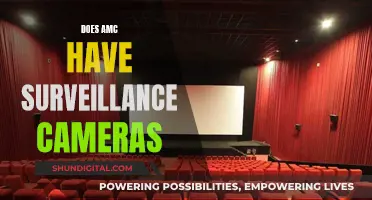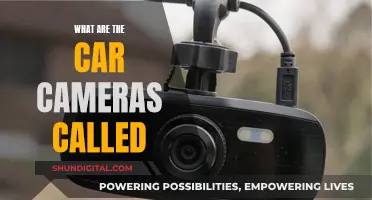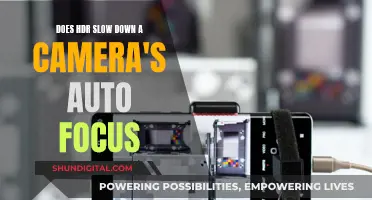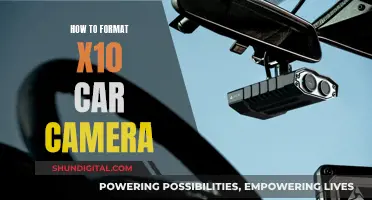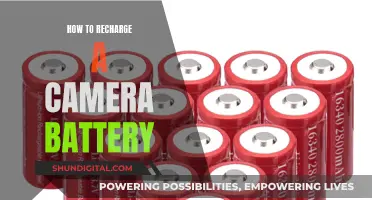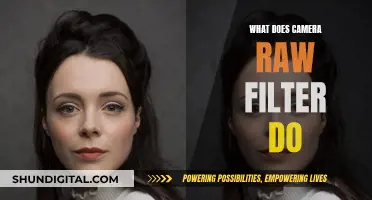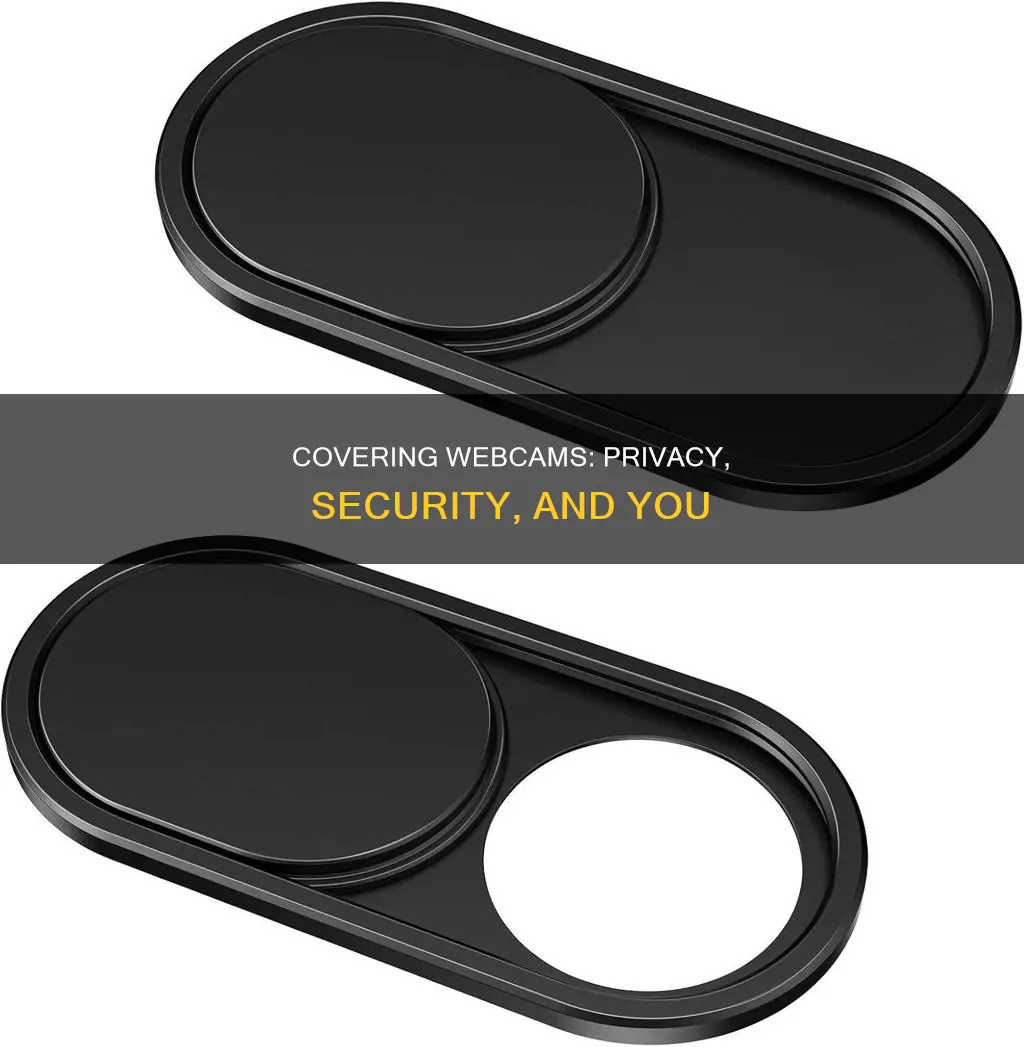
In the age of surveillance, many people have resorted to covering their computer cameras with stickers, slides, and tape. This trend has been spurred by the legitimate concern of being watched, with even FBI director James Comey and Facebook founder Mark Zuckerberg taking measures to cover their webcams. The fear of being watched is not unfounded, as hackers have been known to hijack webcams for spying and blackmail. While some may consider it paranoia, the reality of webcam snooping has led to a thriving market for illicitly obtained footage and the rise of a cottage industry offering camera-covering solutions.
| Characteristics | Values |
|---|---|
| Reason for Covering | Security |
| Industry | Technology |
| People | James Comey, Mark Zuckerberg, Eva Galperin, Brian Pascal, Matthew Green, Joseph Gordon-Levitt, Cassidy Wolf, Tyler Lopez, Will Oremus |
| Organisations | FBI, Facebook, Electronic Frontier Foundation, Stanford, Palantir Technologies, Johns Hopkins University, USA Networks, CamPatch, Idea Stage Promotions, The Guardian, BBC, Google, Snowden, AP Photo, PCWorld, Slate |
| Products | Eyebloc, MacBook Pro, Webcam Cover 1.0, Mr. Robot, Echo, Google Home, Blackshades, Thunderbird, Post-It Notes, Duct Tape, Painter's Tape, Cute Cat Stickers, Invisible Tape, Washi Tape |
What You'll Learn

To prevent hacking and surveillance
Covering one's computer camera has become a common practice to prevent hacking and surveillance. This simple measure is recommended by the FBI and practised by its director, James Comey, who stated:
> "I put a piece of tape over the camera because I saw somebody smarter than I am had a piece of tape over their camera."
Mark Zuckerberg, Facebook's founder, has also been observed covering his laptop's camera and microphone, indicating the importance of this issue to prominent figures in the tech industry.
The primary reason for covering your computer camera is to protect yourself from potential hackers and surveillance. Hackers can gain access to your webcam and turn it on without your knowledge, allowing them to capture footage or audio for malicious purposes, such as blackmail. This type of hacking is not limited to celebrities or public figures; anyone with a public profile to protect may become a target.
Additionally, there is a thriving black market for illicitly obtained video and audio footage from compromised webcams. This market further incentivises hackers to target webcams and underscores the importance of taking preventive measures.
By covering your computer camera with tape, a sticker, or a specialised webcam cover, you can ensure that your privacy is protected. This physical barrier prevents unwanted access to your webcam, providing peace of mind and an extra layer of security.
While it may seem paranoid, taking responsibility for your digital safety and security is essential in today's digital age. Covering your computer camera is a straightforward and effective way to safeguard your privacy and prevent potential surveillance or hacking attempts.
Machines and Computers: Can They 'See'?
You may want to see also

To avoid being watched without consent
Many people cover their computer cameras to avoid being watched without their consent. This practice has been endorsed by FBI Director James Comey, who covers his own webcam with tape. Comey has stated that taking such measures is a way for people to "take responsibility for their own safety and security".
The concern about unauthorised surveillance is not unfounded. There have been numerous reports of hackers gaining access to webcams and capturing footage or images for malicious purposes. In one case, a Pennsylvania school was caught secretly taking thousands of photos of students through the webcams on school-issued laptops. In another incident, a Miss Teen USA contestant was targeted by a hacker who gained access to her webcam and attempted to extort money from her.
The risk of webcam snooping is particularly high for individuals with a public profile or those in positions of power. As a result, even high-profile figures like Facebook founder Mark Zuckerberg have been spotted covering their webcams.
While some may view the act of covering one's webcam as paranoid, it is a simple and effective way to protect one's privacy and ensure that personal spaces and activities remain private.
Surveillance Cameras: Visual and Audio Security
You may want to see also

To protect against webcam snooping
Webcam snooping is a very real threat, and it's not just paranoia. There is a thriving market for illicitly obtained video and audio footage, which can be used for blackmail. In 2013, a Miss Teen USA contestant was targeted by a hacker who had accessed her webcam and taken photos of her. The hacker then gained access to her social media accounts and tried to extort money from her. She was just one of 12 girls he had targeted.
In 2010, a Pennsylvania school was caught secretly taking photos of students through the webcams on school-issued laptops. Harriton High School student Blake Robbins discovered that school employees had photographed him 400 times over a two-week period—sometimes when he was partially undressed or sleeping. The school admitted that the software program took images every 15 minutes without notifying the user, snapping around 56,000 privacy-violating pictures of students.
In light of these threats, many people have taken to covering their webcams with tape or stickers to protect their privacy. This includes high-profile individuals such as FBI Director James Comey and Facebook founder Mark Zuckerberg. Comey has stated that taking such precautions is a "common sense security measure", and that "people ought to take responsibility for their own safety and security".
There are a variety of ways to cover your webcam, each with its own advantages and disadvantages. For example, sticky notes are convenient and removable but may not be opaque enough to completely block the camera. Duct tape is effective at blocking the camera but may leave a sticky residue and is not easily removable. Cute stickers are a popular option, but some may be too translucent to effectively block the camera.
In addition to covering your webcam, there are other steps you can take to protect yourself from webcam snooping. These include keeping your software up to date, enabling your firewall, regularly checking for malware, and avoiding clicking links in emails.
Who Created the First JSH04 Camera?
You may want to see also

To avoid being blackmailed
Covering your webcam is a simple step to take responsibility for your own safety and security. Cybercriminals can gain access to your webcam to record sights and sounds related to you, which can then be used to extort, blackmail, or cause mayhem in your life.
Webcam blackmail, also known as "sextortion", is a form of blackmail where criminals use fake identities to befriend victims online and persuade them to perform sexual acts in front of their webcam. These calls are then recorded, and the criminals threaten to share them online unless they receive payment. In some cases, even when the demands have been met, the offenders will still post the videos.
In 2016, a BBC reporter claimed that the going price for access to a woman's webcam was $1 per girl, whereas computer webcams belonging to men cost $1 for one hundred. There is a thriving market for illicitly obtained video and audio footage, which can be used to blackmail people.
By taking these precautions, you can help protect yourself from webcam blackmail and other forms of cybercrime.
Watching Vivint Camera Footage on Your Computer
You may want to see also

To prevent accidental exposure
There is a thriving market for illicitly obtained video and audio footage, which can be used for blackmail. Hackers can gain access to your device through phishing, where you are tricked into clicking a link in an email, which then infects your device with malware or ransomware. This gives the hacker instant access to your device.
In addition to covering your camera, there are other steps you can take to prevent accidental exposure. These include keeping your software up to date, enabling your firewall at all times, regularly checking for malware, and running anti-virus software. It is also important to avoid clicking links in emails, even if you know the sender.
By taking these precautions, you can help protect yourself from accidental exposure and ensure your privacy and security.
- Close your laptop when you're not using it.
- Use a privacy filter or screen protector to limit the viewing angle of your screen, making it harder for people to see what's on your display.
- Be cautious when using public Wi-Fi networks. Avoid accessing sensitive information or logging into important accounts when connected to public networks.
- Use strong, unique passwords for your accounts and enable two-factor authentication wherever possible.
- Be vigilant and aware of your surroundings, especially when working in public spaces or travelling with your devices.
Avoid Camera Tickets: Tips for Des Moines Drivers
You may want to see also
Frequently asked questions
Covering a computer's camera can prevent people from spying on you. Hackers can gain remote access to your camera and use it to spy on you, and the footage or audio they capture can be used for blackmail.
Hackers can gain access to your camera by infecting your computer with malicious software, or by exploiting vulnerabilities in your system. This can be done by tricking you into clicking a link in a phishing email, for example.
Yes, that is one way to prevent unwanted access to your camera. However, it is also possible for hackers to turn on your camera without your knowledge, even when your computer is closed. Therefore, covering your camera with tape or a sticker can provide an additional layer of security.
In addition to covering your camera, you can also take steps such as keeping your software up to date, enabling your firewall, using anti-virus software, and being cautious about clicking links in emails.


